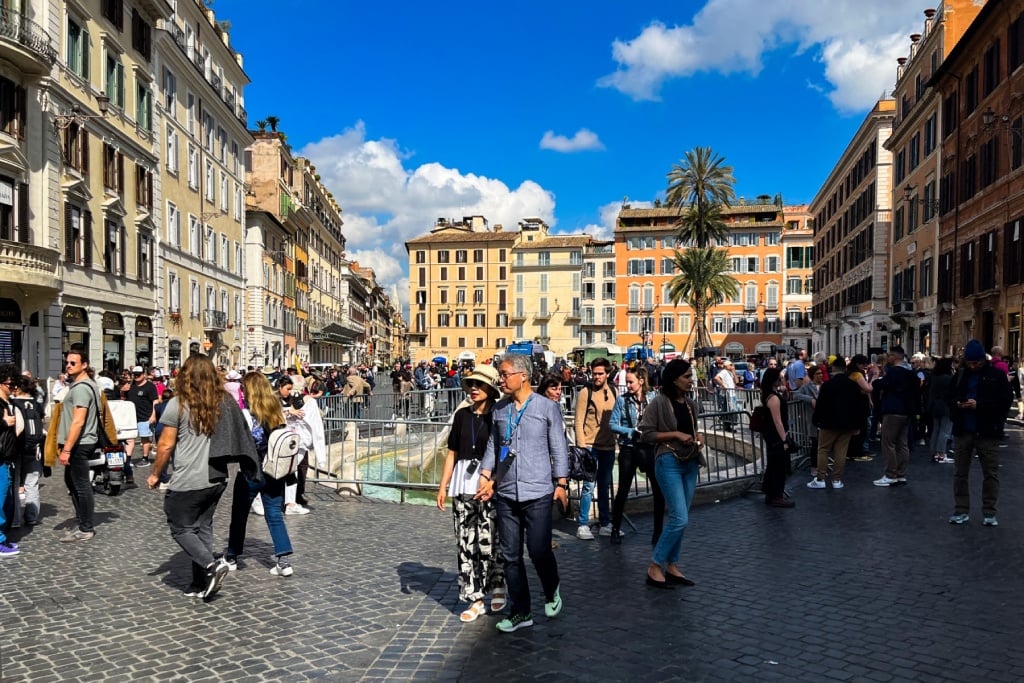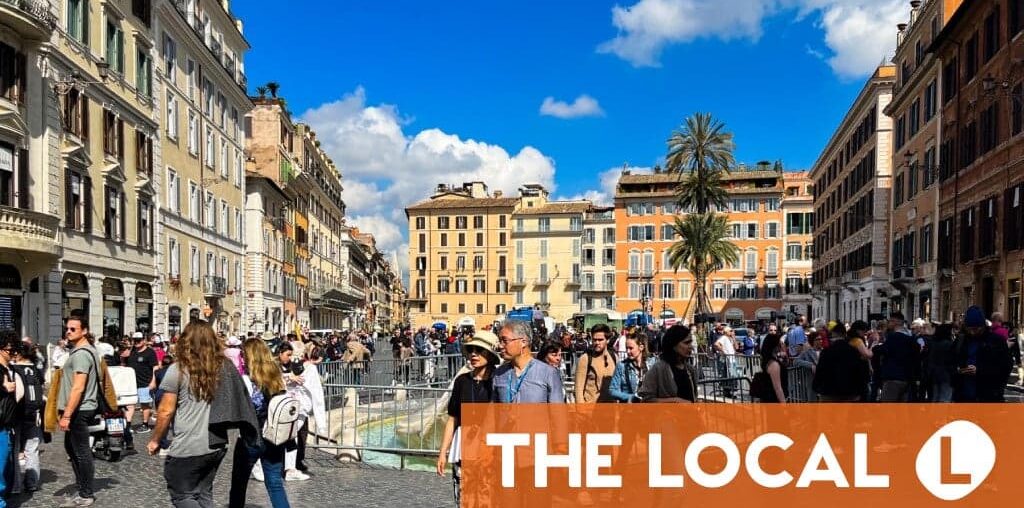
Inside Italy is our weekly look at some of the news, talking points and gossip from Italy that you might not have heard about. It’s published each Saturday and members can receive it directly to their inbox by going to their newsletter preferences or adding their email to the sign-up box in this article.
‘Short-term rentals devour long-term ones’
Rome featured in both domestic and international news this week after several key boxes set up to enable guests to check in independently at holiday rental properties were removed by anonymous saboteurs in an act of protest against growing numbers of tourist lets across the city.
“Short-term rentals devour long-term ones, taking away space for families to create more of it for tourists,” a printed statement left by the protesters said.
This marked the first recorded act of sabotage against holiday rental properties in the capital, and across Italy as a whole. But the problem is anything but new – and definitely not isolated to Rome.
In recent years, all of Italy’s major cities, including Florence, Naples, Venice and Milan, have seen their long-term rental markets shrink dramatically as a result of growing numbers of short-term holiday lets.
According to experts, the affitti brevi boom has given rise to a vicious cycle whereby an increasingly smaller pool of available long-term rentals makes competition ever fiercer and keeps pushing up rents, especially in city centres, where tourist influx is generally higher.
According to data from Idealista, in the last quarter of 2022, there were 66 percent fewer long-term rentals available in Rome and Florence, 57 percent in Venice, 49 percent in Milan, 41 percent in Genoa and 40 percent in Naples compared to the same quarter in 2021.
So what’s being done about the issue?
Despite calls to put a cap on the number of available tourist lets in major cities and bring in incentives for owners renting out their properties long-term, the government has so far avoided any type of decisive regulation on this front.
(And I would humbly dare consider the recent national ID requirement for tourist lets as a way to temporarily assuage citizens’ concerns rather than solve the problem).
But the time for (real) action seems to be looming ahead for both national and city authorities as, following Thursday’s sabotage act in central Rome, the prospect of mass anti-tourism demonstrations similar to those we’ve been seeing in Spain in recent months is not as far-fetched as it may have been before.
Advertisement
Will Italy ask homeowners to be insured against natural disasters?
After Italy’s northeastern Emilia Romagna region was once again hit by devastating flooding last month, the government hinted at the possibility of introducing a requirement for homes and businesses located in at-risk areas to be insured against natural disasters.
The head of Italy’s Civil Protection Nello Musumeci said: “The time when the state could provide resources for everyone indefinitely is over. Prevention cannot be a sole responsibility of institutions; every citizen must be aware that they live in a high-risk area and should take every initiative to mitigate it.”
“We will gradually move towards requiring families to take out home insurance policies against natural disasters,” he added.
Unsurprisingly, Musumeci’s words sparked outrage among homeowners in the flood-hit Emilia Romagna region, as well as in other areas of the country that have historically been particularly vulnerable to events such as flooding, earthquakes and wildfires.
But, as ill-timed and inconsiderate as they may have been, I would argue that the minister’s speech also sparked a social and political debate that was urgently needed in the country.
Italy’s one of the European nations that are most exposed to natural disasters (especially earthquakes), with 55 percent of homes located in at-risk areas.
However, only 6 percent of homes and 5 percent of businesses are insured against natural disasters.
Advertisement
According to Prometeia, Italy has spent over 300 billion euros since 1946 to cover damage caused by earthquakes, eruptions, and extreme weather events.
As instances of atmospheric emergencies continue to increase due to climate change, it’s easy to see why the government is pushing for the introduction of a home insurance requirement.
Though this isn’t much more than a proposal at this point, we can expect major developments (and discussions) on the subject next year.
Inside Italy is our weekly look at some of the news and talking points in Italy that you might not have heard about. It’s published each Saturday and members can receive it directly to their inbox by going to their newsletter preferences or adding their email to the sign-up box in this article.

